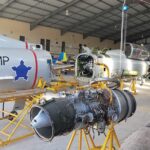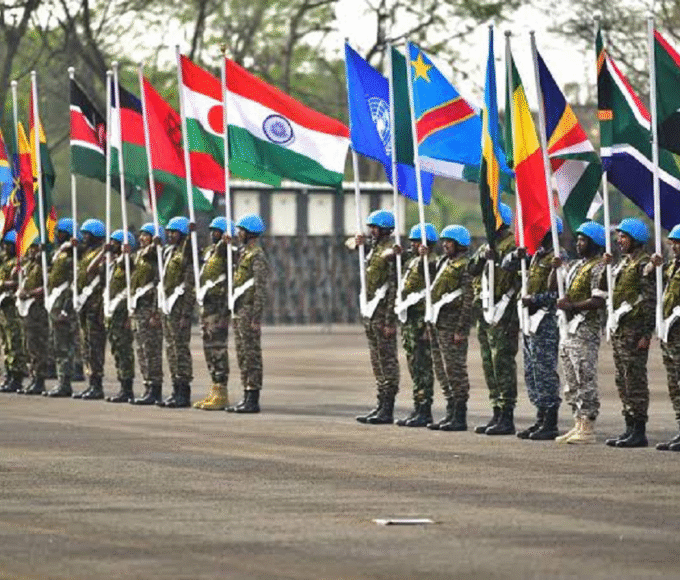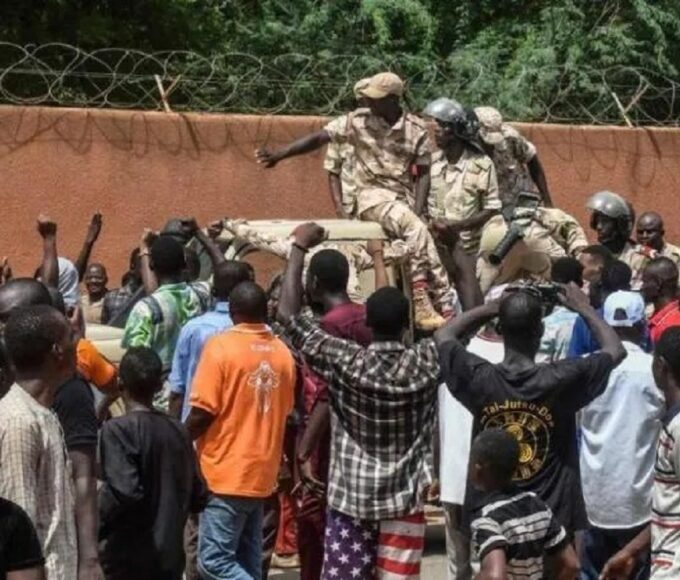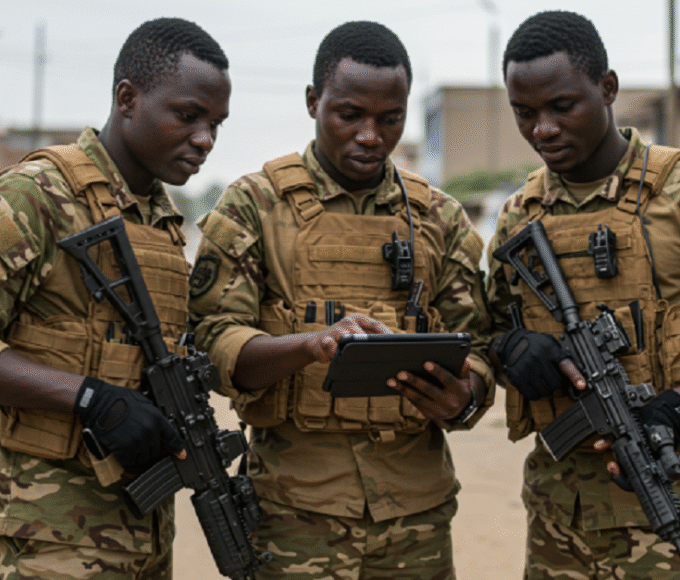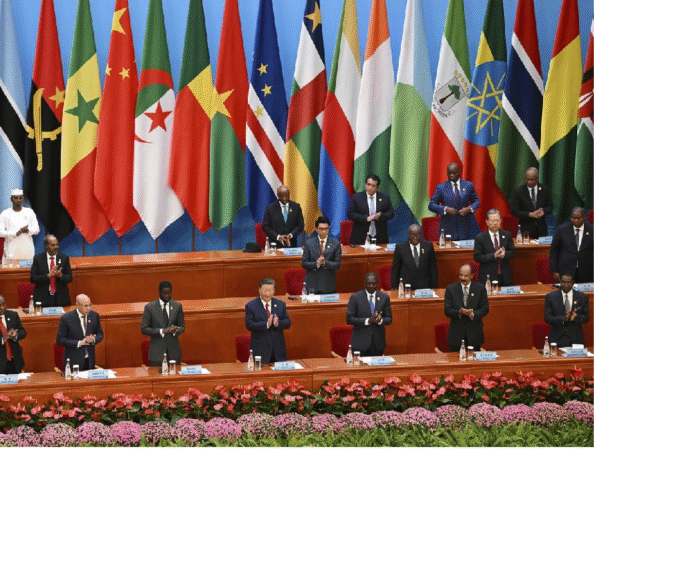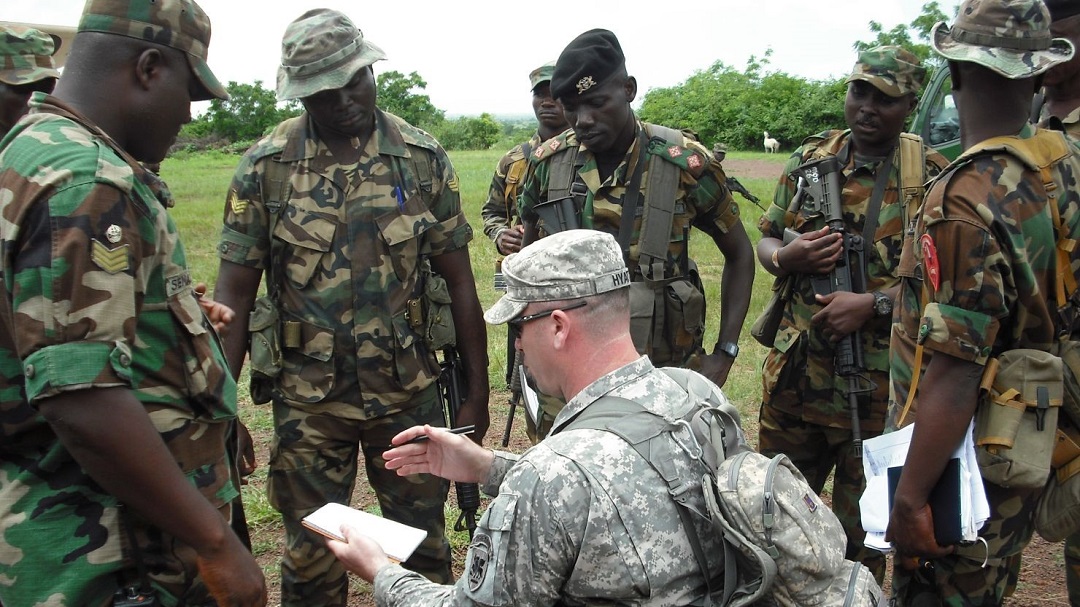
EVOLVING HORIZONS: TRAINING THE AFRICAN SOLDIER IN A CHANGING LANDSCAPE
The training of African soldiers has undergone a profound transformation in recent years, shaped by the continent’s complex security challenges—ranging from insurgencies and terrorism to peacekeeping operations. As African nations grapple with both internal conflicts and external threats, training programs are increasingly adopting modern approaches that emphasize adaptability, professionalism, and technology. The goal is to build forces that are not only combat-ready but also aligned with democratic values and human rights. Multinational exercises and locally developed curricula show how African militaries are moving beyond traditional drills toward strategic, tech-driven methods that enhance operational effectiveness.
Historically, African military training was rooted in colonial legacies, with post-independence forces relying heavily on basic infantry tactics and foreign doctrines. After the Cold War, priorities shifted toward counterinsurgency and peacekeeping, often influenced by global partners. Programs sponsored by the United States, for instance, trained thousands of African troops in counterterrorism, though questions remain about their long-term effectiveness and human rights impact. Increasingly, however, African armies are seeking greater autonomy. Nigeria, for example, hosts regular research and development conferences to adapt doctrines to contemporary challenges, reflecting a broader trend toward self-reliance.
Related Article: Inside Africa’s Elite Ground Forces: Training, Tactics, and Traditions
One of the most important innovations in recent decades is the use of simulated battlefield technologies. South Africa pioneered this approach in 1997 by converting facilities for simulation exercises, setting a precedent for cost-effective, risk-free preparation. Today, simulation is spreading across the continent, allowing soldiers to practice in realistic scenarios without live ammunition. These systems improve decision-making, coordination, and tactical skills while reducing costs and casualties. For resource-constrained militaries, simulation is particularly valuable in preparing troops for urban warfare and asymmetric conflicts.
International partnerships continue to play a central role, as global powers compete for influence. The United States has emphasized humanitarian and peacekeeping responses, helping African units build rapid deployment capabilities. Meanwhile, some militaries have pivoted toward Russia, participating in exercises like Zapad-2025 for advanced weapons training and doctrinal exchange—improving combat capacity but potentially deepening dependency. China’s growing role blends aid with security cooperation, offering joint drills and training programs that expand its strategic footprint across Africa.
Alongside these external relationships, intra-African cooperation is emerging as a powerful trend. Rwandan instructors have trained Mozambican troops in advanced infantry courses, showcasing regional solidarity in tackling insurgencies. The Alliance of Sahel States (AES), which unites Burkina Faso, Mali, and Niger, is working toward a joint army with shared command structures, aiming to combat regional threats collectively.
These collaborations emphasize not only technical expertise but also ideological grounding, as seen in Uganda’s focus on political education for its officer corps.
Technological innovation is further reshaping military preparation. Satellite networks, artificial intelligence, and drones are increasingly integrated into training, enhancing intelligence, surveillance, and even disaster response. Africa’s growing satellite capacity, combined with multinational exercises like African Lion, is exposing troops to modern practices such as counter-IED operations, CBRNE training, and next-generation command-and-control systems. These tools help reduce the cognitive burden on soldiers, allowing for faster and more precise decision-making under pressure.
Despite these advances, challenges remain. Building a culture of professionalism and ethics is essential, as poorly trained or unprofessional forces can intensify instability. Many countries are investing in youth-focused programs to shape future soldiers. Burkina Faso’s patriotism initiatives and Ghana’s leadership training for graduates are examples of efforts to instill values of responsibility and discipline early on. Still, ensuring equal access to innovations is critical, as gaps between elite units and standard forces risk undermining cohesion.
Looking forward, the future of African military training will depend on sustainable, Pan-African models that balance local resources with global expertise. Initiatives such as Gambia’s self-reliant officer courses and South Africa’s large-scale recruitment drives signal a determination to strengthen armies rooted in integration, technology, and professionalism. If African militaries can combine innovation with unity and ethical foundations, they are well-positioned to become pivotal actors in both regional and global security.
King Richard Igimoh, Group Editor ALO
King Richard Igimoh, Group Editor African Leadership Organisation is an award-winning journalist, editor, and publisher with over two decades of expertise in political, defence, and international affairs reporting. As Group Editor of the African Leadership Organisation—publishers of African Leadership Magazine, African Defence & Security Magazine, and Africa Projects Magazine—he delivers incisive coverage that amplifies Africa’s voice in global security, policy, and leadership discourse. He provides frontline editorial coverage of high-profile international events, including the ALM Persons of the Year, the African Summit, and the African Business and Leadership Awards (ABLA) in London, as well as the International Forum for African and Caribbean Leadership (IFAL) in New York City during the United Nations General Assembly.
Recent Posts
Categories
- Air & Aerospace17
- Border Security15
- Civil Security6
- Civil Wars4
- Crisis5
- Cyber Security8
- Defense24
- Diplomacy19
- Entrepreneurship1
- Events5
- Global Security Watch6
- Industry8
- Land & Army9
- Leadership & Training5
- Military Aviation7
- Military History27
- Military Speeches1
- More1
- Naval & Maritime9
- Policies1
- Resources2
- Security12
- Special Forces2
- Systems And Technology9
- Tech6
- Uncategorized6
- UNSC1
- Veterans7
- Women in Defence9
Related Articles
INDIA’S GROWING MILITARY PARTNERSHIPS WITH AFRICA
India’s engagement with Africa is undergoing a quiet but powerful transformation. What...
ByKing Richard Igimoh, Group Editor ALOOctober 14, 2025COLD WAR AFRICA: PROXY WARS AND THEIR IMPACT
The Cold War in Africa, spanning from the late 1940s to the...
ByKing Richard Igimoh, Group Editor ALOSeptember 26, 2025AI AND AFRICA’S MILITARY INTELLIGENCE: PROMISE AND PERIL IN A TRANSFORMING SECURITY LANDSCAPE
Africa’s military landscape is entering a new chapter, shaped by the rapid...
ByKing Richard Igimoh, Group Editor ALOSeptember 22, 2025CHINA’S EXPANDING MILITARY FOOTPRINT IN AFRICA: A NEW ERA OF GLOBAL COMPETITION
China’s military presence in Africa is no longer a side note to...
ByKing Richard Igimoh, Group Editor ALOSeptember 22, 2025





